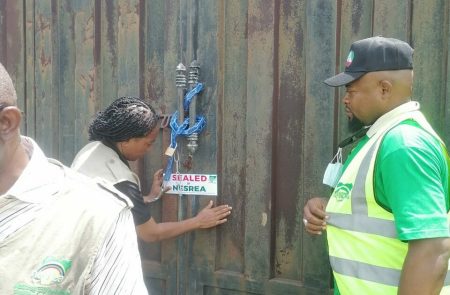The Urgent Need to Combat Fake News in Africa: Leveraging AI and Building a Culture of Media Integrity
Dr. Tope Ojeme, a lecturer at Baze University, Abuja, has issued a clarion call for action against the rising tide of misinformation and disinformation plaguing Africa. Speaking at the West Africa Broadcast Media Academy (WABMA) in Abuja, Ojeme emphasized the urgent need for African developers to create AI-powered digital tools to combat fake news and promote media integrity. He warned of the dire consequences of inaction, painting a grim picture of a future where falsehoods reign supreme, eroding public trust and destabilizing democratic societies.
Ojeme’s call to action centers around empowering African tech innovators to develop AI-driven solutions that can effectively identify and debunk fake news. He proposed the creation of AI-powered fact-checking plugins for newsrooms, blockchain-based archives to protect journalistic content from manipulation, and open-data platforms to foster transparency and accountability. These tools, he argued, would equip citizens with the means to challenge purveyors of fake news and hold leaders accountable. By fostering a culture of informed skepticism and critical thinking, these initiatives could help stem the spread of disinformation and protect the integrity of information ecosystems.
The proliferation of fake news, exacerbated by the rapid advancements in technology, poses a significant threat to societies, particularly those grappling with developmental challenges. Ojeme highlighted the dangers of deepfake technology, which allows for the manipulation of video content, further blurring the lines between truth and fiction. This ability to create realistic yet fabricated videos can be used to spread misinformation, damage reputations, and incite violence, posing a serious threat to social stability and democratic processes.
To counter these threats, Ojeme advocates for a multi-pronged approach that goes beyond merely debunking fake news. He calls for the establishment of “systems of truth” – ecosystems of integrity that encompass legal frameworks to protect journalists who expose the truth and the creation of dedicated "truth desks" within media organizations. These truth desks would act as central hubs for verifying information, debunking false narratives, and promoting accurate reporting. By investing in these systems, media organizations can regain public trust and play a vital role in combating the spread of disinformation.
The urgency of this issue is underscored by the increasingly noisy and chaotic information landscape. In an era where speed often trumps accuracy and volume overwhelms value, the ability to discern truth from falsehood is paramount. The proliferation of fake news, amplified by social media algorithms and the 24/7 news cycle, creates an environment where misinformation can spread rapidly and unchecked. This constant bombardment of information makes it increasingly difficult for individuals to navigate the digital world and make informed decisions. The challenge lies in cutting through the noise and prioritizing credible sources of information.
Ojeme’s call to action aligns with WABMA’s mission to not only train media professionals but also instill in them a deep understanding of the power and responsibility that comes with communicating information. The academy’s DebunkIt Challenge, which recognizes efforts to debunk fake news, exemplifies this commitment. By equipping future media professionals with the skills and knowledge to identify and combat misinformation, WABMA is playing a crucial role in fostering a more informed and responsible media landscape. This initiative, along with Ojeme’s recommendations for leveraging AI and building robust systems of truth, offers a pathway towards a future where truth prevails over falsehood and informed decision-making is empowered. The fight against fake news requires a collective effort, involving governments, media organizations, tech companies, and individuals. By working together, we can create a more resilient information ecosystem and protect the foundations of democratic societies.













